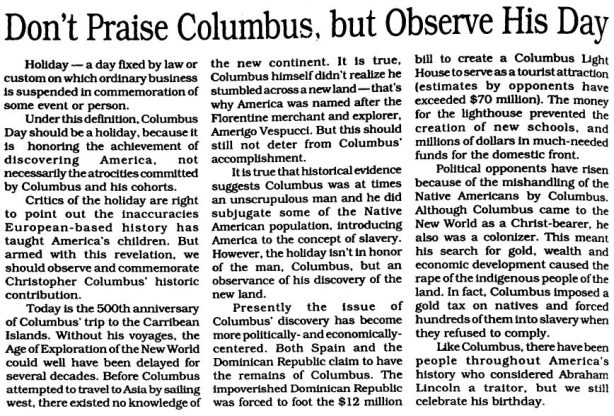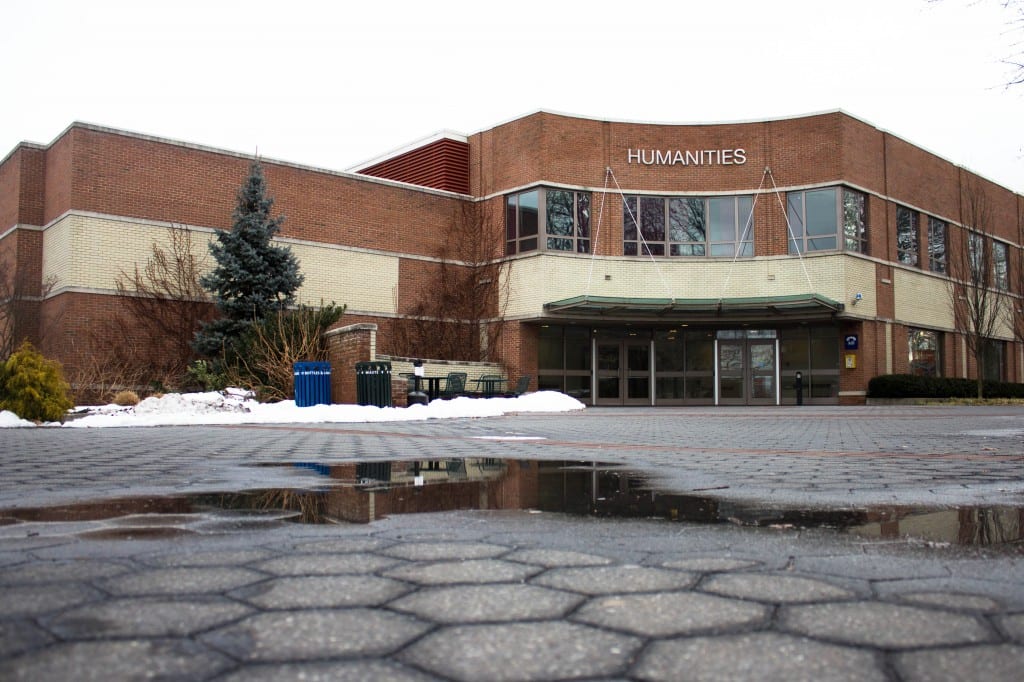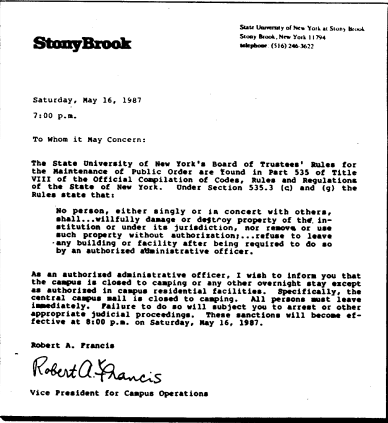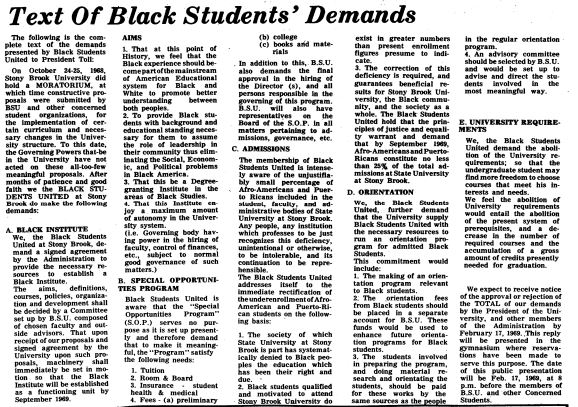
Kelcie Eberharth is the head archivist at The Statesman and an editor at Stony Brook’s Undergraduate History Journal. This article is co-written with assistant archivist Liam Noonan, an undergraduate history major.
A central part of history today is looking at the events of the past with a magnifying glass. While events like Columbus’ expedition to the New World opened a path to cross-world connections, it also led to the relocation and extermination of indigenous groups like the Taíno people.
This change in perspective has evolved over more than 50 years, and this turn towards accountability on campus has been recorded through editorials, letters to the editor and other publications within The Statesman.
The present prevailing dialogue relating to Columbus’ expedition to North America has been one of exploitation and insensitivity towards pre-established native communities. In a 1990 article published within The Statesman titled “Why All Students Should Take AFS Courses,” the celebration of Columbus’ supposed discovery of the new world was described as “a slap in the face of the Native Americans.”
The inaccurate portrayal of Columbus as the discoverer of lands already inhabited discounted the established societies and tribal communities already present in North America.
However, Columbus’ expedition did not have adverse effects on just Native American communities, but also on African slaves used to facilitate the exploitative mercantile economies constructed in this “New World.”
In 1991, resident assistant Karen Roach responded to a letter published two weeks prior titled, “Father of Slavery Was Black,” condemning it for not acknowledging the impact Columbus had on establishing slavery in North America.
Within her letter, “Slavery: A White Invention,” Roach sites the devastating impact that Columbus’ journey had on North America, including a “massive import” of slaves into North America and their deaths due to overworking and brutal oppression on behalf of Columbus.
The holiday has been a point of contention across the nation and Stony Brook for a number of years. A 1992 editorial published in The Statesman defends the established position of Columbus Day as a holiday not because of Columbus himself, but because “it is honoring the achievement of discovering America, not necessarily the atrocities committed by Columbus and his cohorts.”
There are now efforts for Columbus Day to be referred to as Indigenous Peoples Day in modern media, shifting the spotlight of celebration towards Native American culture and diversity.
Although Stony Brook does not officially recognize Indigenous People’s Day within the Academic Calendar, publications from The Statesman over the last 30 years have demonstrated the fading prominence of Columbus Day in favor of a celebration of Native American and Amerindian Culture.
The school has also had a growing presence of clubs and recognition of indigenous people and culture in recent years.
In a 2000 publication of The Statesman, Chris Latham highlighted the foundation of Stony Brook’s first Native American Culture Club (NACC). The club invited membership from all students, regardless of race and ethnicity. Founding members wanted to revitalize and renew interest for the local Shinnecock, Montaukett, Sioux, Seneca and Pinnecoose cultures.
The NACC’s celebration of Amerindian culture was one of many attempts to rejuvenate Stony Brook’s Native American culture. In a 2001 article published by The Statesman, Anjali Dogra covered the Student Organization Creating Indigenous Awareness’s (SOCIA) second annual Harvest Dinner.
SOCIA’s Harvest Dinner was intended to “educate and make the Stony Brook community aware of Native American history and heritage.” Similar to the NACC, demographics consisted of a vast array of cultures and ethnicities, spreading Native American culture throughout Stony Brook and across cultural boundaries.
The Stony Brook campus itself has cultural significance within the Native American community as it was built upon lands obtained from the Setalcott peoples, an Amerindian tribe native to Long Island.
Columbus’ impact on indigenous populations and African Americans in North America is a topic that continues to have importance in modern national media. While Columbus himself is slowly fading in the narrative of our nation’s discovery, the profound importance of indigenous populations and their cultures should not fade with him.













